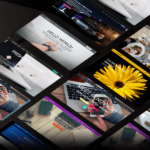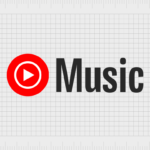What Are the Different Types of Mobile Apps?
Mobile apps are software applications designed to run on mobile devices such as smartphones and tablets. They are typically available through app stores like the Apple App Store for iOS devices and Google Play Store for Android devices.
Mobile apps come in various types, each serving different purposes and catering to different user needs.
Here are some common types of mobile apps:
1.Social Media Apps:
- Examples: Facebook, Instagram, Twitter, Snapchat
- Purpose: Connecting with friends, sharing content, staying updated with news and trends
2.Productivity Apps:
- Examples: Microsoft Office Suite, Evernote, Trello, Asana
- Purpose: Enhancing productivity, task management, note-taking, collaboration
3.Entertainment Apps:
- Examples: Netflix, Spotify, YouTube, TikTok
- Purpose: Streaming videos and music, watching movies, entertainment content
4.Gaming Apps:
- Examples: Candy Crush Saga, PUBG Mobile, Clash of Clans, Among Us
- Purpose: Providing entertainment through games, varying from casual to highly interactive and multiplayer games
5.Lifestyle Apps:
- Examples: Pinterest, Tinder, Airbnb, Uber
- Purpose: Enhancing lifestyle, including dating, travel, transportation, and inspiration
6.Health and Fitness Apps:
- Examples: MyFitnessPal, Fitbit, Strava, Headspace
- Purpose: Tracking fitness activities, monitoring health metrics, providing guided workouts and meditation
7.Educational Apps:
- Examples: Duolingo, Khan Academy, Coursera, Udemy
- Purpose: Learning new skills, languages, or subjects through interactive lessons and courses
8.Finance Apps:
- Examples: PayPal, Venmo, Mint, Robinhood
- Purpose: Managing finances, banking, budgeting, investing
9.E-commerce Apps:
- Examples: Amazon, eBay, Etsy, Shopify
- Purpose: Online shopping, selling products, and managing e-commerce businesses
10.News and Information Apps:
- Examples: BBC News, Google News, Flipboard, Feedly
- Purpose: Staying updated with news, reading articles, and following topics of interest
11.Utility Apps:
- Examples: Google Maps, Weather Channel, Calendar, Calculator
- Purpose: Providing essential utilities and tools for daily use
12.Travel and Navigation Apps:
- Examples: Google Maps, Waze, TripAdvisor, Booking.com
- Purpose: Navigation, travel planning, booking accommodations, and exploring new places
13.Communication Apps:
- Examples: WhatsApp, Zoom, Slack, Skype
- Purpose: Messaging, video calls, team collaboration, staying connected
Each type of app serves a unique purpose and often overlaps with others in functionality. The choice of app type depends on the user’s needs and preferences.
Some of the benefits of a mobile app are:
- Gives more value to the customers
- Reduces cost and increases customer engagement
- Mobile apps aid promotion and offers great support
- Enhances the visibility of your brand
- Mobile apps are the best social media platform
Here are some topics related to mobile apps we could discuss:
1.App Development:
- Tools and frameworks (e.g., Flutter, React Native, Swift, Kotlin)
- Development process (from ideation to deployment)
- Best practices in UX/UI design
- Backend services and APIs
2.App Marketing and Monetization:
- Strategies to promote your app
- Monetization models (e.g., in-app purchases, ads, subscription models)
- User acquisition and retention
3.Trends and Innovations:
- Latest trends in mobile app development
- Emerging technologies (e.g., AI, AR/VR, IoT)
- Popular and successful apps in the market
4.Specific App Recommendations:
- Productivity apps
- Health and fitness apps
- Entertainment and gaming apps
- Educational apps
5.Security and Privacy:
- Ensuring app security
- Handling user data responsibly
- Compliance with regulations (e.g., GDPR, CCPA)








